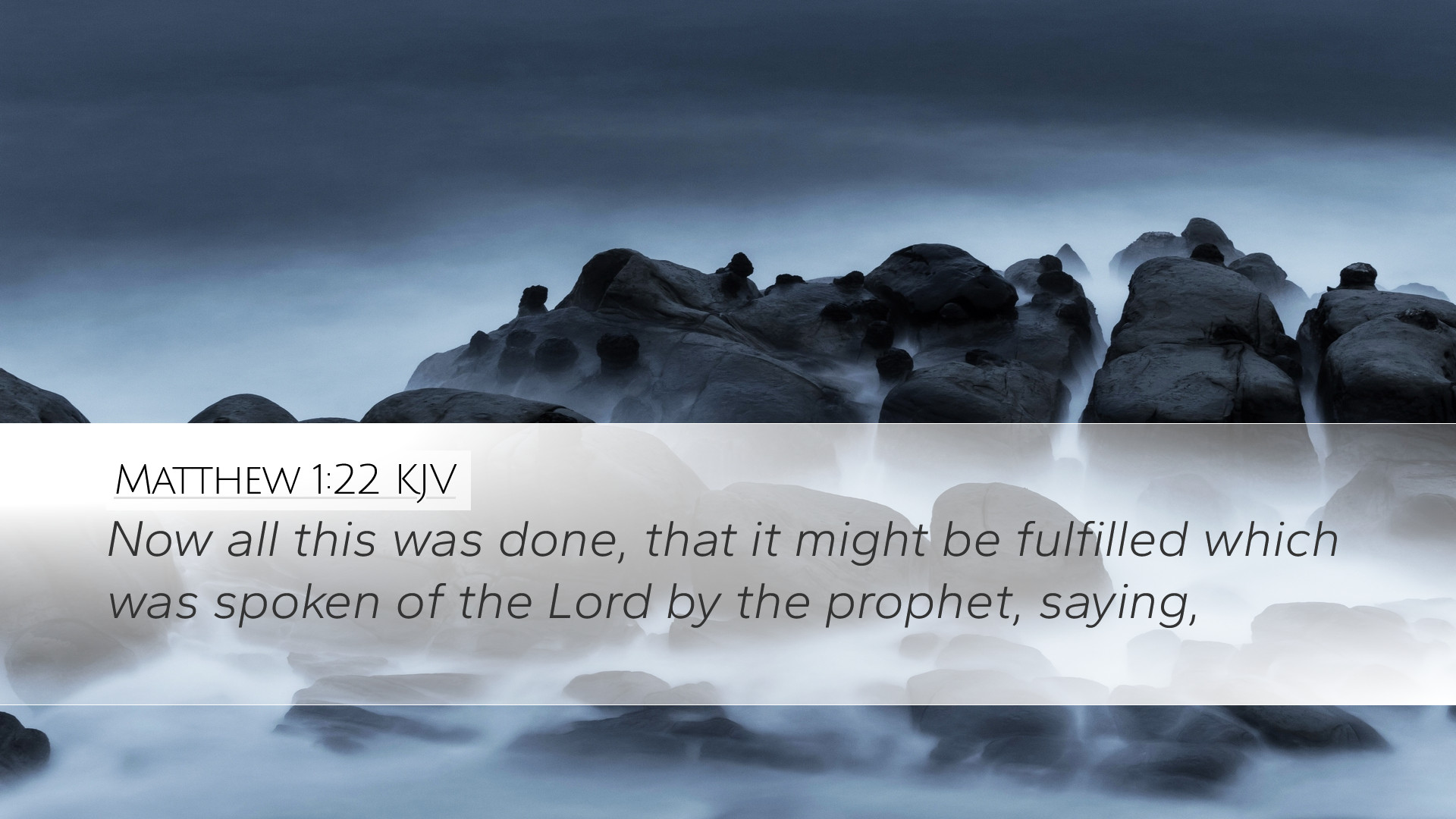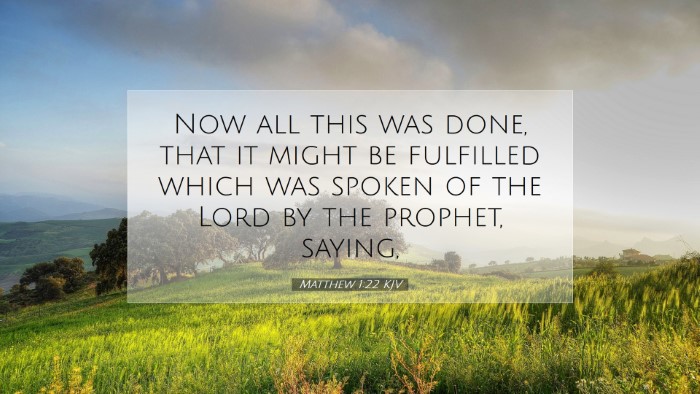Commentary on Matthew 1:22
The verse Matthew 1:22 states: "Now all this took place to fulfill what was spoken by the Lord through the prophet." This succinct passage serves as a pivotal moment in the narrative of the birth of Jesus Christ, emphasizing the divine orchestration of events leading to His incarnation.
Contextual Analysis
Understanding the surrounding context of Matthew 1:22 is critical. The Gospel of Matthew begins with a genealogy that establishes Jesus' messianic credentials, linking Him to the promises made to Abraham and David. The narrative then introduces the conception of Jesus, revealing Joseph's initial struggle and subsequent divine reassurance.
Theological Implications
This verse provides profound theological insights regarding:
- Fulfillment of Prophecy: Matthew explicitly ties Jesus' birth to Old Testament prophecy, asserting His identity as the Messiah. The prophetic fulfillment serves to strengthen the faith of early believers and fortify the Christian claim of Jesus as the long-awaited Savior.
- Divine Sovereignty: The phrase "all this took place" underscores God's sovereignty in directing history toward redemptive ends. It affirms that events, however chaotic they may appear, are under divine control.
- Incarnation: The mention of the prophecy also points toward the significance of the incarnation, where God becomes man. This mystery, essential to Christian doctrine, implies that God is intimately involved in human history and existence.
Commentary Insights
Matthew Henry's Commentary
Matthew Henry emphasizes the importance of recognizing that the events surrounding Christ’s birth were not coincidental but part of a preordained plan. He notes that this prophecy from Isaiah (Isaiah 7:14) is crucial as it demonstrates God's intimate involvement with His creation. Henry stresses that every event, from the conception of Jesus to His lineage, is meticulously arranged by divine providence.
Albert Barnes' Commentary
Albert Barnes provides a historical and textual analysis, suggesting that the reference to the prophet showcases God’s continuous revelation to His people. He aligns this verse with the broader redemptive story, asserting that the coming of Christ is the climax of God's promises. Barnes emphasizes the relevance of prophecy in not just validating Jesus’ claim as the Messiah, but also in providing hope and assurance to believers regarding God’s faithfulness.
Adam Clarke's Commentary
Adam Clarke approaches the text with a keen eye on the fulfillment of prophecy. He explains that Matthew's use of "fulfill" indicates that the events surrounding Jesus’ birth were designed to reflect the prophetic utterances made long before His coming. Clarke points out the significance of divine intervention in the context of human doubt—illustrating how God’s promises are as reliable as they are profound.
Practical Applications for Ministry
The implications of Matthew 1:22 extend beyond doctrinal assertions; they carry practical applications vital for pastors, students, and theologians:
- Trust in God’s Plan: This verse encourages believers to recognize that God’s purposes unfold in His timing. Pastors can remind congregations, especially in challenging times, that God is at work behind the scenes, fulfilling His promises.
- Valuing Prophetic Insight: Understanding the fulfillment of prophecy can deepen one's appreciation of Scripture. The role of prophecy in affirming Jesus' identity should be taught as an essential aspect of Christian theology.
- Encouragement of Faith: Reflecting on the trials that Joseph endured and the divine reassurance he received provides a model for believers facing doubt or fear. It encourages a posture of faith despite uncertainty.
Conclusion
In conclusion, Matthew 1:22 encapsulates the essence of God's redemptive plan, affirming the significance of prophecy and divine sovereignty. When interpreting this verse, it is crucial to recognize its foundational role in announcing the advent of Christ. The insights drawn from the commentaries of respected theologians enrich our understanding and deepen the faith of all who reflect upon this profound moment in biblical history.


